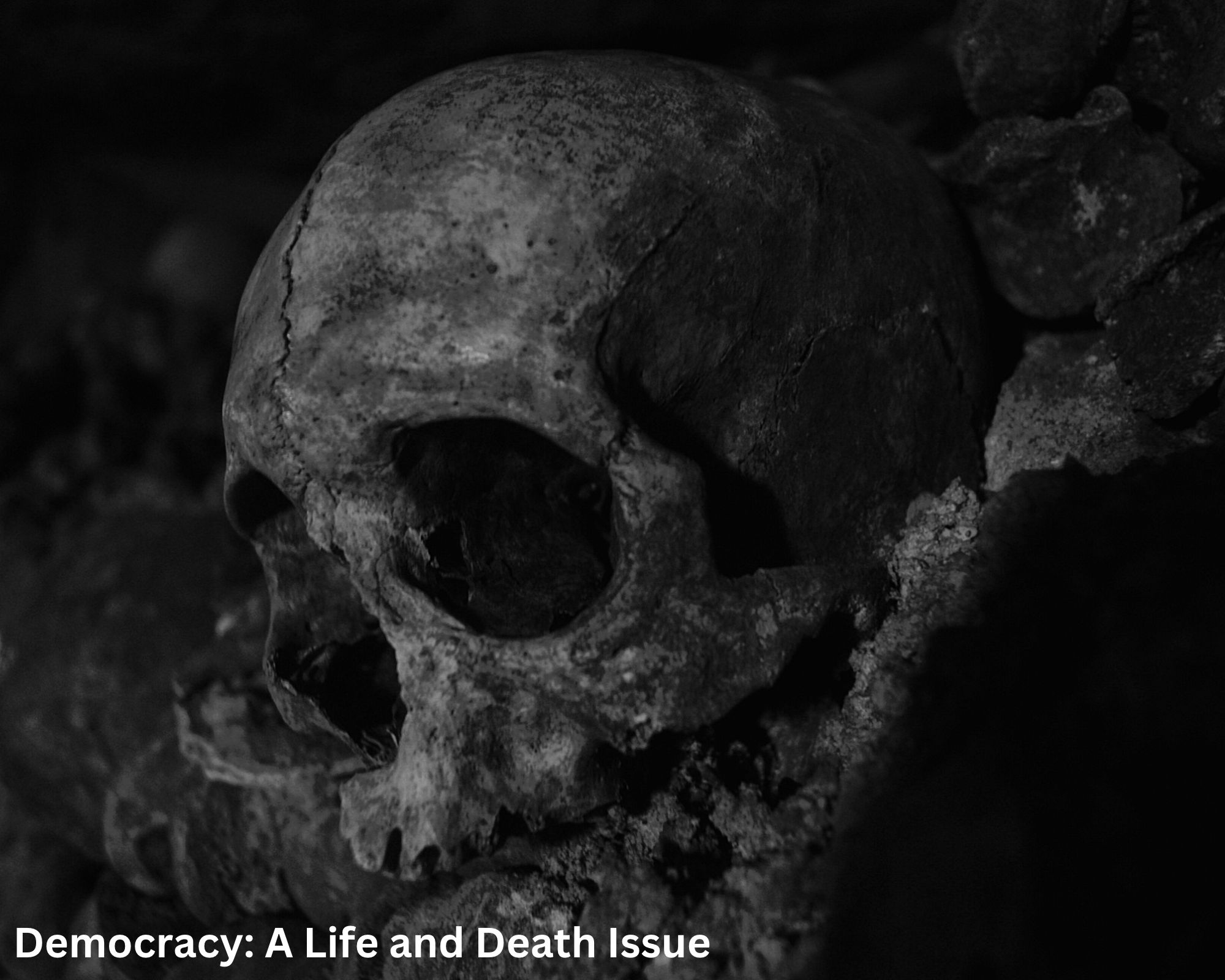Summary:
-
He was recently shot dead in his house by unidentified gunmen.
-
The state’s response to demonstrators setting fires was fatal.
-
When two protestors were shot during a march calling for justice, the state clarified that it was more interested in repression than looking into Maseko’s death.
-
Following the 2021 protests, a deal to convene a national conversation was made with South African President Cyril Ramaphosa and the Southern African Development Community (SADC).
-
It’s time for South Africa and SADC to confront Mswati, demand true responsibility for the murder of Maseko and step up their efforts to promote genuine discussion, constitutional reform, and a democratic route.
Thulani Maseko was aware that speaking out in Eswatini was dangerous. He was a well-known human rights attorney and activist who had served 14 months in prison for criticising his nation’s lack of judicial independence. He was recently shot dead in his house by unidentified gunmen.
King Mswati III, the nation’s despotic monarch, was one of the people Maseko sued. The last surviving absolute king in Africa is Mswati, who has been in power since 1986. As one example of his unchecked power in 2018, he unilaterally and without prior notice changed the nation’s name from Swaziland to Eswatini. Maseko intended to file a lawsuit against Mswati to contest the renaming on constitutional grounds.
Maseko served as the chair of the Multi-Party Forum, a network that unites corporations, political parties, and other organisations to promote a smooth transition to multiparty democracy. Additionally, he represented two lawmakers, Bacede Mabuza and Mthandeni Dube, who was detained and incarcerated in 2021 on terrorism-related allegations after advocating for constitutional democracy.
Maseko’s murder’s cause is still unknown, as well as whether or if those responsible acted independently or in the direction of another. But many in the nation’s democracy movement find it a little strange because Mswati is claimed to have said the authorities will “deal with” those calling for political reforms just before their death. According to reports, Maseko had received death threats.
A thorough investigation of Maseko’s murder is demanded by civil society. The investigators should be impartial and ensure that whoever is responsible is held accountable, no matter how far up the chain of custody. However, it appears unlikely that will happen.
The king has blood on his hands
Maseko’s murder is a severe form of retaliation if it was motivated by his advocacy for human rights, but it’s not the only recent strange death. Thabani Nkomonye, a law student, vanished in May 2021. A few days later, his body was found with noticeable marks of torture. Few police investigations were conducted because many people thought they were the murderer.
Students demonstrated in response to the news of Nkomonye’s murder to call for justice and multiparty democracy since only in a democracy can governmental institutions be held accountable. This catalyzed the lengthy protests that erupted in Eswatini in 2021.
Some demonstrators began to target monarchy-owned businesses as the demonstrations continued. The state’s response to demonstrators setting fires was fatal. Security personnel fired indiscriminately against demonstrators while following a shoot-to-kill policy ostensibly ordered by Mswati, resulting in dozens of fatalities and nearly a thousand injuries. Even if Mswati doesn’t end up having Maseko’s blood on his hands, there are many other murders for which he is probably accountable.
A pattern, perhaps?
People don’t hold out much hope that Maseko’s death will be the last due to ongoing repression; instead, they fear it may signal an escalation. If the state was behind the attack, it indicates that its repression has become more brazen; it may target well-known individuals in the confident assumption of immunity.
Other signs that this might be the case include: The home of Penuel and Xolile Malinga, members of the largest political party, the People’s United Democratic Movement, has been shot upon twice in recent months. Human rights attorney Maxwell Nkambule escaped an apparent assassination attempt in December 2022 when shots were fired at his automobile.
When two protestors were shot during a march calling for justice, the state clarified that it was more interested in repression than looking into Maseko’s death. The risk is that there will be an increase in lawlessness and new waves of state lethality in response to violent protests.
Need for sincere conversation
The right for individuals to have a say in decisions that impact their lives is generally demanded abroad, as the democracy movement is requesting. Instead of the king choosing the prime minister, the public wants to pick him or her. They require the right to vote for political parties, which is disallowed in elections. They favour a constitutional monarchy over an absolute one because they want the king to be accountable to the law. They also want an economy that benefits everyone. For example, while most people live in poverty, Mswati enjoys a rock-star luxury made possible by his family’s direct control over significant state assets.
Following the 2021 protests, a deal to convene a national conversation was made with South African President Cyril Ramaphosa and the Southern African Development Community (SADC). Many people don’t think the conversation would be sincere, even if it did.
Given that it is the country where most of Eswatini’s exiled political and civil society leaders reside, South Africa has a specific obligation to promote democracy. It’s time for South Africa and SADC to confront Mswati, demand true responsibility for the murder of Maseko and step up their efforts to promote genuine discussion, constitutional reform, and a democratic route.

